My View: Time for Title 6
The Barnstable Patriot
Zenas Crocker
Published: 8:01 a.m. ET Feb. 17, 2021 Updated: 9:31 a.m. ET Feb. 17, 2021
Story Highlights
Groundwater on Cape Cod moves one to four feet a day, so all the wastewater and nitrogen that we have put in the ground is on a slow march to our surrounding waters, and it will be with us for decades.
At Barnstable Clean Water Coalition, we are working on ways to intercept the nutrient-loaded groundwater and clean it up.
Cape Cod is not alone, but we can develop and prove out technology that will impact the world.
For decades, the residents of the Cape and Islands have had their heads in the sand. Literally. We all were led to believe that our waste treatment system known as a Title 5 septic system took care of our wastewater problems, and we could all go about the business of enjoying the pristine waters and blue economy of Cape Cod. And then, after we knew better, we chose to believe this falsehood. Boy, were we wrong.
I grew up on the Cape, and 40 or 50 years ago, I remember swimming in our bays, seeing huge beds of eel grass growing, and scallops and puffer fish all over. Our waters were a natural aquarium. In our ponds, we could see the fish. Fresh water mussels were everywhere, and it seemed like we did not have a care in the world. Maybe you remember, too?
Even back then, scientists knew that putting our wastewater in the sandy soils of Cape Cod was a bad idea. But nobody listened. Economic growth was too important, and besides, everything looked fine. Where was the “proof”? Now we know better.
The Association to Preserve Cape Cod reports that more than 70% of Cape Cod ponds are troubled and in decline. Estuaries on Nantucket Sound are choked with algae and swimming is a slippery affair in more ways than one. Some people are still in denial, but the Cape Cod Commissions reports that our wastewater, old cesspools, and aging Title 5 septic systems are responsible for more than 80% of the problem.
Unfortunately, things are going to get worse. Our biggest problem is nitrogen, which comes from our own urine, which converts from ammonia to nitrogen in a chemical reaction that occurs out of sight and underground. Liquid nitrogen acts as a fertilizer, so when it enters the salt water via our groundwater, it makes certain organisms like algae grow. A lot. Which is why the water feels slimy.
Groundwater on Cape Cod moves one to four feet a day, so all the wastewater and nitrogen that we have put in the ground is on a slow march to our surrounding waters, and it will be with us for decades. Even worse, rising temperatures, no matter what the cause, will exacerbate the problem. We are essentially putting fertilizer in the water and turning up the heat, which makes things grow even faster than normal.
At Barnstable Clean Water Coalition, we are working on ways to intercept the nutrient-loaded groundwater and clean it up. In some cases, this might mean using shellfish to filter nutrients out of the water. In other cases, we can harness bacteria to turn the nitrogen into harmless gas. In the end, and for the long term, we need to treat our wastewater at the source. At your home and mine.
Many of us will need to connect to municipal treatment as more towns on the Cape invest in that critical effort. Maybe someday, 50% of our homes will be connected. But we can, and must, do better.
Over time, we need to replace all Title 5 systems and cesspools with new technology, call it Title 6. For over 20 years, the Massachusetts Alternative Septic System Test Center has been testing technologies that could replace Title 5 systems. We need, in essence, a “development center” and not just a “test center.” Federal, State, and local resources should all be involved, along with private enterprise and our great universities.
In the end, no one approach will become Title 6, but regulators at the State and local Boards of Health can draw the line with a performance standard. Individual systems are even now approaching the level of treatment that large municipal waste treatment plants accomplish. And that should be the goal. Not necessarily “net zero” nitrogen and other contaminants, but close to it.
The sad truth is that one out of every four or five homes in our great country relies on technology only steps away from an outhouse. This is a problem in Florida, Texas, California and our Great Lakes and rivers. Every state and worldwide.
Cape Cod is not alone, but we can develop and prove out technology that will impact the world. I am proud to report that my organization, the Barnstable Clean Water Coalition, is working with partners like the U.S. Environmental Protection Agency, the U.S. Geological Survey, The Nature Conservancy, and many others on new groundbreaking approaches that hold the promise of a clean water future. Together we are working to develop and prove out a “Title 6” approach that may do for wastewater what the cellphone did for communications. Ubiquitous, powerful, and accessible. We all have a part to play in solving this crisis that sits, literally, in our backyards. Stay tuned and join us in this fight for a clean water future.
The author is CEO of the Barnstable Clean Water Coalition, a nonprofit working to restore and preserve clean water in Barnstable. This is the in a three-part series.
